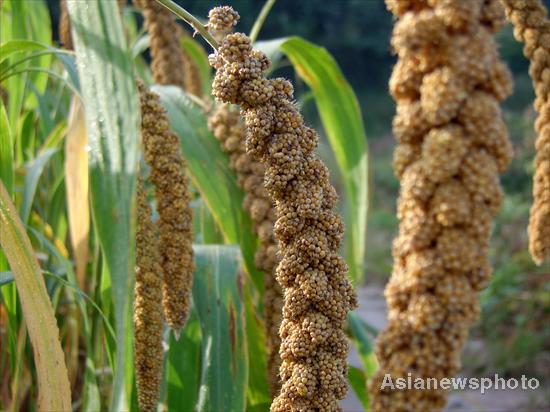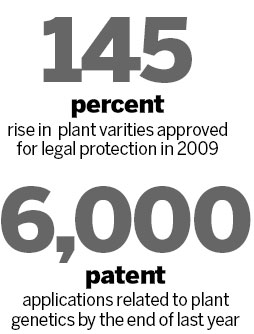Bizchina
Food official: GM crops safe
By Wang Xin (China Daily)
Updated: 2010-07-21 11:02
 |
Large Medium Small |

Engineered plants could feed more of the hungry, but uneasiness lingers
As the global debate on genetically modified (GM) food rages, China's head of food safety says the issue is not about danger.
"I never think of genetically modified food as a safety issue," Chen Junshi, member of Chinese Academy of Engineering and head of the National Institute of Nutrition and Food Safety, told China Daily on the sidelines of a high-level Sino-EU forum on food safety held in Beijing in mid-July.
Chen cited World Health Organization criteria that says only food with poisonous and harmful substances is defined as unsafe.

So far no scientist has presented evidence that proves GM food contains any poisonous or harmful substances, let alone in levels required to damage human health, Chen noted.
"Through evaluation, we are seeking to control potential risks," he said.
Chen cited air travel to make his point. "As is known to all, taking a flight has risk, yet the level of danger is acceptable, so we choose to go by air," he said.
Any new farm species results from genetic change, but that is actually quite common in agriculture and fundamental to its development, Chen said.
The public tends to believe that hybrid rice developed by traditional methods is safe while genetically modified rice is not, which is unfair, the expert said.
But Xiong Lei, a guest journalism professor with Tsinghua University, said "the core question concerning the GM rice issue is not whether it is safe but whether people's rights will be honored, especially their foremost right to choose what they eat".
GM food has triggered debate since the day scientists announced it was possible.
Proponents say the benefits of GM food far outweigh potential risks due to their higher production and capacity to resist diseases and pests, which then reduces use of fertilizers and chemicals.
Huazhong Agricultural University's proprietary bio-engineered rice reportedly requires 80 percent less chemicals while increasing yield by 8 percent.
Improved harvests lead proponents to believe that GM plants are an answer to global hunger.
Yet uncertainty over long-term impacts from genetic modifications raises red flags for many.
Opponents fear GM foods could damage existing plants or create unforeseen species that could have results that are impossible to predict.
GM food could also involve national economic security when patented biotech is controlled by foreign companies.
| ||||
Despite the debate, accelerating research and development of bio-technology is expected to result in breakthroughs that boost agricultural production, Science and Technology Daily cited the Ministry of Agriculture as saying.
But patent applicants should reveal direct and primary sources of the genetic heritage used in their creations, according to the latest law, which came into effect last year.
Patent applications in China related to plant genetics surpassed 6,000 by the end of last year.
Among them, Chinese applicants numbered nearly 3,400, more than half of the total, according to the State Intellectual Property Office.
In contrast, regulations on protection of new varieties of plants provide a broader protection.
Since the regulations were released in 1997, the Ministries of Agriculture and the State Forestry Administration have received more than 7,200 applications for legal protection of new plant varieties. Nearly 3,300 had been granted by the end of last year.
In 2009 alone, the ministry granted 1,119 applicants the legal rights for plant varieties, a surge of 145 percent over the previous year.



